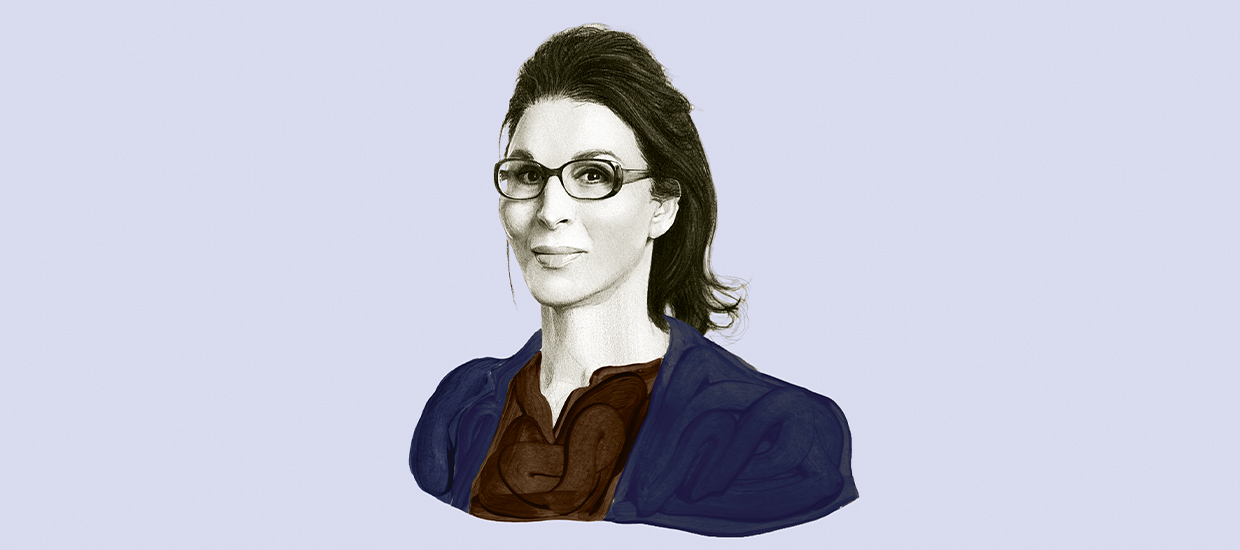As a teenager in Algeria, Sue Y. Nabi found herself enraptured by the concept of beauty. She and her father, an engineer and politician who also painted, would have long discussions about the science of proportion and light and the question, she says, of “How can you create something that attracts the eye?” She devoured international fashion magazines and listened to experimental pop music, including David Bowie and The Human League.
This early cultural education created a beauty industry savant. After studying engineering and marketing, Nabi rose through the ranks at L’Oréal, becoming president of L’Oréal worldwide in 2005. During her time running the brand, she championed the evolution of its famous tagline into “Because We’re Worth It,” as she understood the need for inclusivity. (Nabi, a transgender woman, says that the “notion of beautiful doesn’t necessarily mean classical. Beautiful can also mean very unique self-expression. Beauty is what makes you feel better.”) She helped revive a languishing Lancôme in the late aughts, resulting in a record €3.32 billion turnover. And in 2017, she launched a clean beauty skin-care brand, Orveda, long before that concept became a buzzword.
For the last year and a half, Nabi, 54, has been putting her acumen to the test at Coty, the struggling global beauty conglomerate, where she became the fifth CEO in seven years. She has delivered solid financial progress every quarter across the company’s portfolio, which includes CoverGirl, Rimmel London, and Gucci Beauty. She chalks her success up to one lesson in particular: “Do not imitate,” she says. “Anticipate.”
On the eyes:
“Middle Eastern beauty is all about eyes, and this shaped me. When I was the head of L’Oréal, I was always asking the photographers and artistic directors to focus on women’s eyes, rather than on their lips, for example, because for me eyes were synonymous with power, synonymous with soul, synonymous with who you are deep inside.”
On Taoist principles:
“The first principle of Tao is ‘with, not against.’ That’s the Orveda tagline—something that was inspired by Taoism but also by my own lessons after almost 30 years in this industry. Don’t try to fight against the wind. Use the wind to help you go where you are going. Don’t try to fight against nature. Nature will always be stronger than you. Use the powers of nature to do what you want to do, instead of trying to control or disturb nature. The second principle, I call it acting like water. Water goes around the obstacle and goes farther, and this is something I try to infuse in my own life and as a way of working at Coty.”
On clean beauty:
“We just launched the remake of Rimmel Kind & Free. It’s the first vegan clean line coming from a mainstream global brand, and this demonstrates how people are all about clean beauty. We are doing this across the whole business. We are launching fragrances using carbon-captured ethanol. We are cleaning everything that needs to be cleaned, sometimes far above what the regulations request. But we are also adding a second leg, which is, how can we create products that are going to enhance your natural biology? Beauty has become a health-driven business. It has to do with the health of your skin, with mental health, with this idea that beauty is something that needs to make you not only look but feel better.”
On originality:
“The problem with the corporate world is that there is comfort in looking at what others are doing and doing the same—sometimes making it less expensive, or sometimes changing the colors, the names, etc. At L’Oréal, I learned how to, of course, understand the market, understand what others are doing, but to use this to do things differently, better, newer—going forward rather than just imitating what others are doing. I believe the beauty industry is sick of copycats, and that is something I am focused on at Coty: How can we do things that the others haven’t done?”
Next Up: Barbie Adler Helps CEOs and Celebrities Find Love with Selective Search
